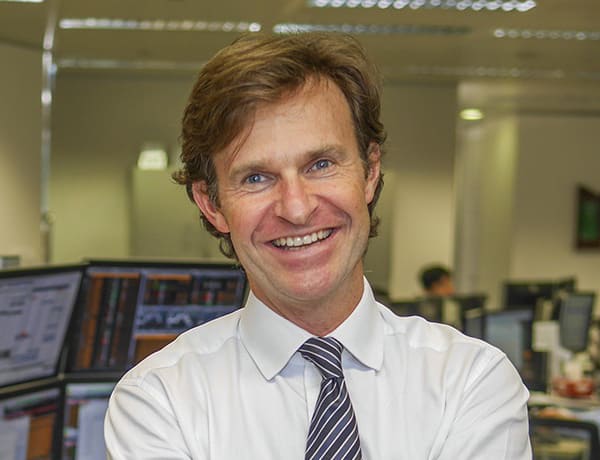Michel Löwy, co-founder and CEO of Hong Kong–based boutique investment bank SC Lowy, which owns banks in Korea and Italy, shares his thoughts on the looming recession, mid-caps versus SMEs, M&A and alternative financing.

Global Finance: Are rising interest rates good for the private debt market and the banking business that SC Lowy acquired?
Michel Löwy: Yes, it generally is. In a rising rate environment, your net interest margin tends to be greater in traditional banks. Alternative banking models of challenger banks will do better because you can improve your margin. In terms of fund management, it’s generally a positive because you have more companies that will struggle to refinance themselves with a traditional player. You’ll have more companies that have cash flow insurance. We can come in, sit down and find solutions for them that aren’t available. Certainly, we are witnessing that. Our deal pipeline is growing very fast, but not just because of rates. Rates are one part of the equation.
GF: Do you think central banks can restore the global economy in the next few years, or will you be helping banks in distress?
Löwy: For the next two to three years, we’re going to be extremely busy. We need to bring our complementary pools of capital. The central banks are in a bind. They want to stop inflation, so they can’t then put liquidity into the system. They need to slow the system down, but slowing the system down—in a recessionary environment with cost inflation—is troublesome. The central banks have to make a choice. They cannot fight inflation and get growth at the same time. They made the choice to combat inflation, and that means less liquidity. Capital like ours is going to be needed in the next three years. Beyond that, it’s cyclical. Things will stabilize, and maybe pain is needed to cure the system.
GF: Does small business have access to the financing it needs?
Löwy: SMEs are suffering less than mid-caps. With SMEs, you can—with the support of artificial intelligence—create an efficient system to lend and, with enough diversification, be successful. We are teaming up with tech companies to expand into the SME industry in Italy. SMEs need smaller loans, so you can build a portfolio that is sufficiently diversified with the support of tech, and not have a high default rate. It’s different with mid-caps. You need to meet them and understand their business model. It’s not sufficient to just look at aggregated data and use AI. You need to do the traditional credit work to make lending decisions. That’s why large corporates tend to be covered by big banks, tiny corporates are increasingly well covered by challenger banks supported by tech, and the mid-cap space is in no man’s land.
GF: Which component impacts your business the most?
Löwy: The one that keeps me awake at night is Know Your Customer. We do business with new counterparts all the time. You conduct due diligence and background checks, but the reality is the quality is never going to be perfect. And a bad deal is not going to bring down a business. It’s par for the course. As Wayne Gretzky said, “You miss 100% of the shots you don’t take.” With compliance, it’s difficult. Mid-caps sometimes don’t have a high profile. They are often family businesses. We do our best to dig deep and understand whom we do business with, but you are not always protected from a bad surprise.
GF: Will challenger banks get involved with bigger businesses and corporates, or limit themselves to SMEs?
Löwy: Challenger banks are tech-based, have a statistical approach and build diversified portfolios—great for SMEs, but not for larger corporates where a single loss can be too material. We have seen discussions around M&A, or alliances between challenger banks that have technology and businesses like us with a complementary set of skills. We have had conversations to see whether it would make sense to team up. Larger banks continue to retrench, whether it’s for compliance reasons, for cost or because their equity base is increasingly challenging, and that provides more opportunities for business like ours that tend to be much more agile.



